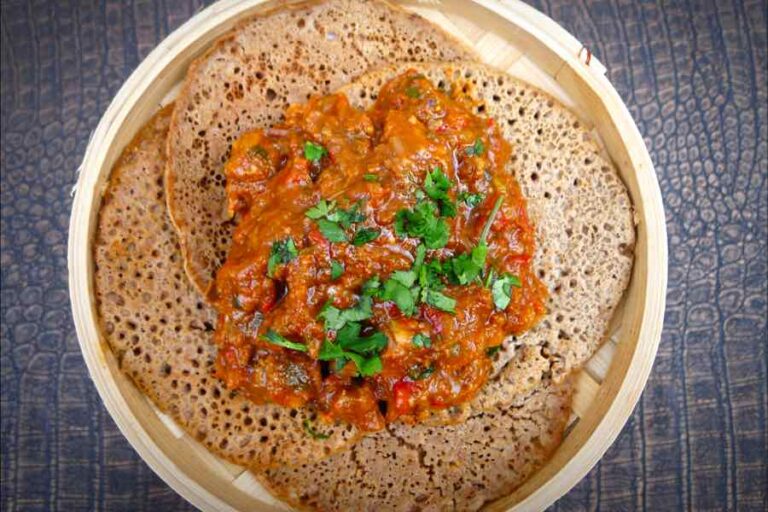Introduction: Eritrean cuisine and communal dining
Eritrean cuisine is a reflection of the country’s diverse history and culture. It is influenced by the neighboring countries of Ethiopia, Sudan, and Somalia, as well as the Italian colonization that lasted from 1890 to 1941. Eritrean cuisine features a wide variety of vegetarian and meat dishes, with spices and herbs playing a prominent role. However, Eritrean cuisine is not just about the food, but also the communal dining experience that comes with it.
The importance of hospitality in Eritrean culture
Eritrean culture places a high value on hospitality, which is expressed through communal dining. Sharing meals with others, whether they are family, friends, or strangers, is a way of showing generosity and kindness. In Eritrean culture, it is considered impolite to refuse an invitation to share a meal, as it is seen as a rejection of the host’s hospitality. Therefore, communal dining is not only about nourishing the body, but also about nourishing relationships and building connections.
The social significance of sharing meals in Eritrea
Sharing meals in Eritrea is not just a social activity, but also a way of reinforcing social structure and hierarchy. Meals are often prepared and served by women, who are responsible for maintaining the household and providing for their families. Sharing meals with others, especially with elders and respected members of the community, is a way of showing respect and deference. It is also a way of maintaining social harmony and resolving conflicts, as sharing a meal with someone is seen as a way of reconciling differences and building trust.
Traditional Eritrean food and its role in communal dining
Traditional Eritrean food plays a central role in communal dining, as it reflects the country’s history and culture. Injera, a sourdough pancake made from teff flour, is the staple food in Eritrea and is often served with various stews and dishes. Vegetarian dishes such as shiro (ground chickpea stew) and tsebhi (spiced lentil and vegetable stew) are also common, as many Eritreans follow a vegetarian or vegan diet. Meat dishes such as zigni (spicy beef or lamb stew) and tibs (spiced grilled meat) are also popular, especially during special occasions and celebrations.
The etiquette of communal dining in Eritrea
Communal dining in Eritrea follows a set of unwritten rules and etiquette. Guests are expected to wash their hands before eating, and to eat with their right hand only, as the left hand is considered unclean. It is also customary to wait for the host or the eldest member of the group to start eating before beginning to eat oneself. Finally, it is important to leave some food on the plate as a sign of respect and appreciation for the host’s hospitality.
The benefits of communal dining for Eritrean society
Communal dining has many benefits for Eritrean society. It fosters social cohesion and strengthens relationships between individuals and communities. It also promotes healthy eating habits, as communal dining often involves sharing a variety of dishes and vegetables. Finally, it contributes to the preservation and transmission of Eritrean culture, as traditional dishes and customs are passed down from generation to generation through communal dining.
How communal dining brings people together in Eritrea
Communal dining brings people together in Eritrea by creating a sense of community and belonging. It provides a space where individuals can connect with others, share stories and experiences, and build relationships. Communal dining also allows for the exchange of ideas and perspectives, and promotes understanding and empathy among different groups of people.
Conclusion: The value of communal dining in Eritrean culture
Communal dining is an integral part of Eritrean culture, as it reflects the country’s values of hospitality, generosity, and social cohesion. It is not just about the food, but also about the relationships and connections that are built through sharing meals with others. Communal dining reinforces social structure and hierarchy, promotes healthy eating habits, and contributes to the preservation and transmission of Eritrean culture. Ultimately, communal dining brings people together and strengthens the fabric of Eritrean society.

